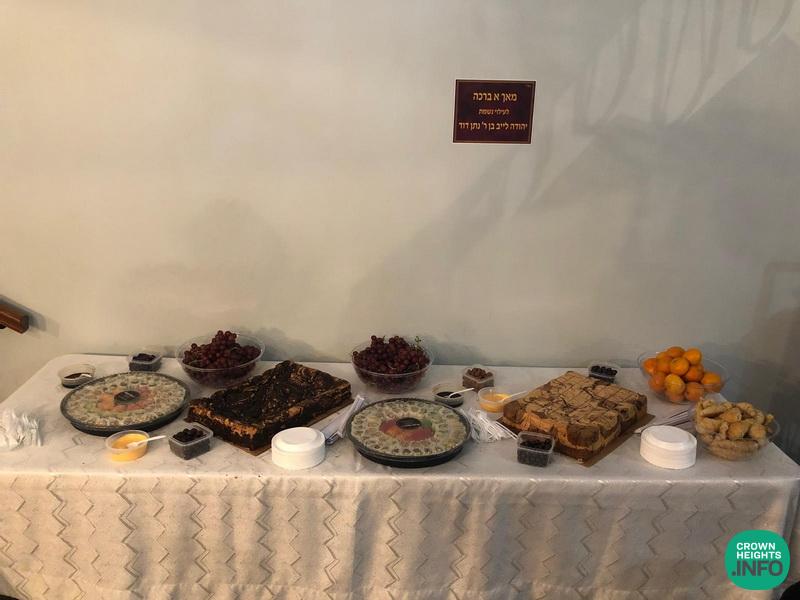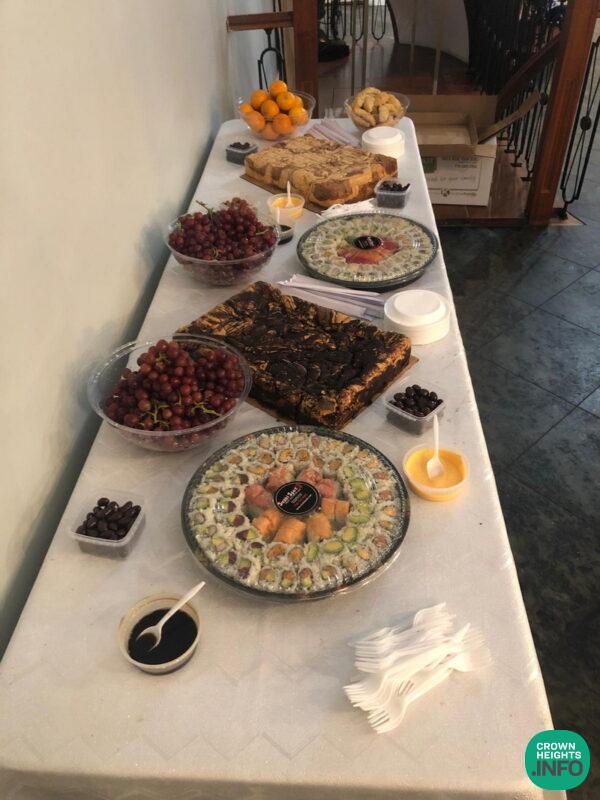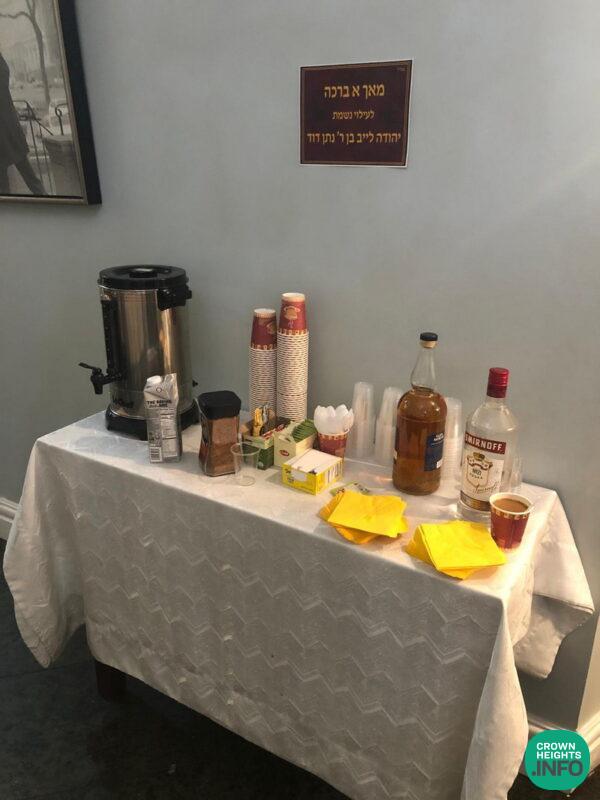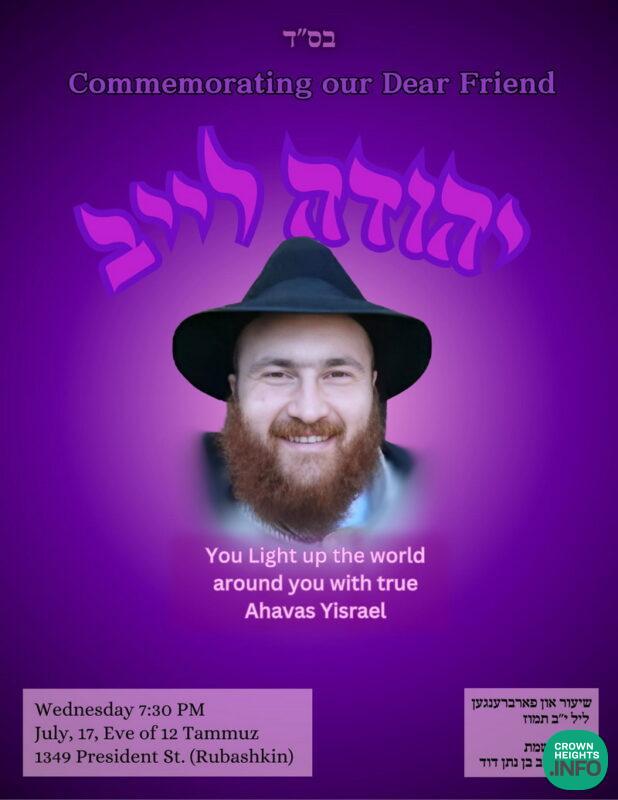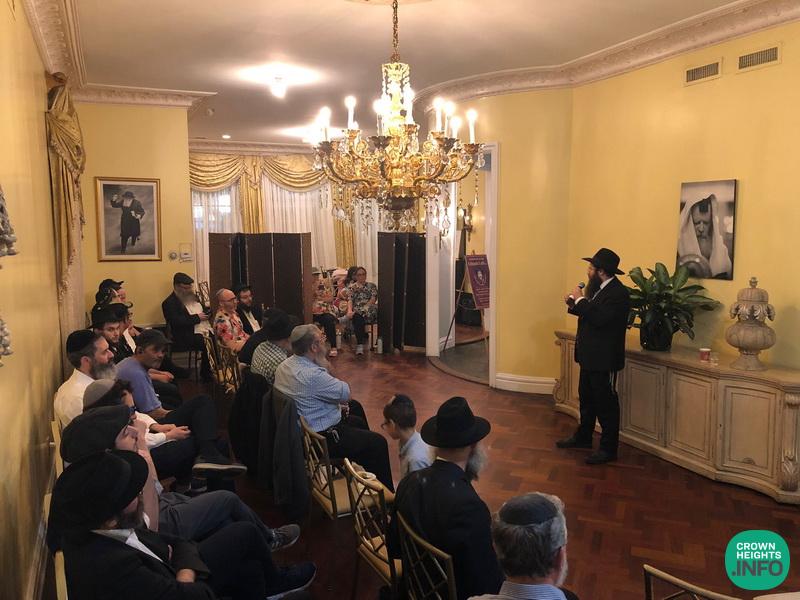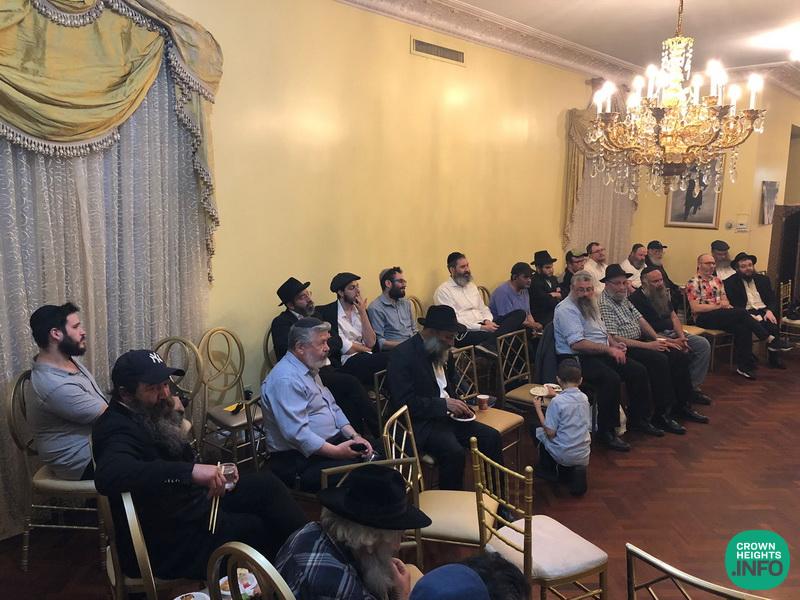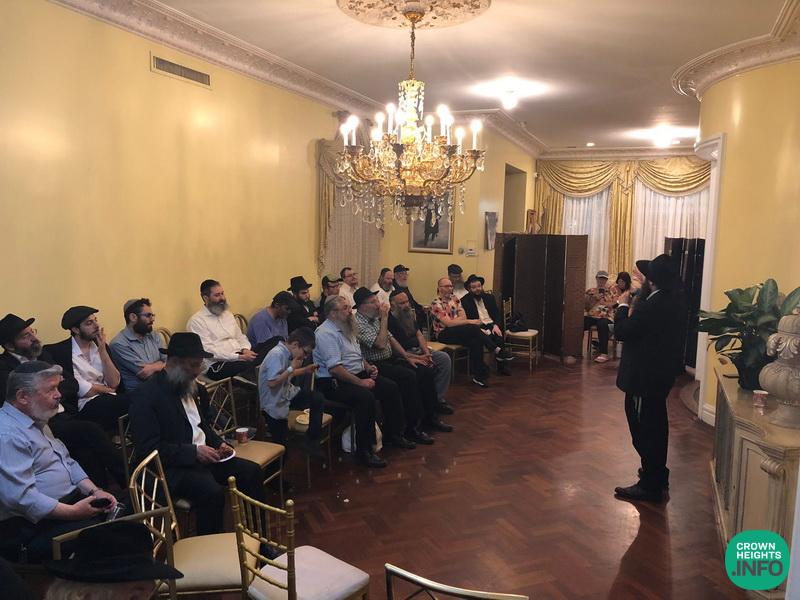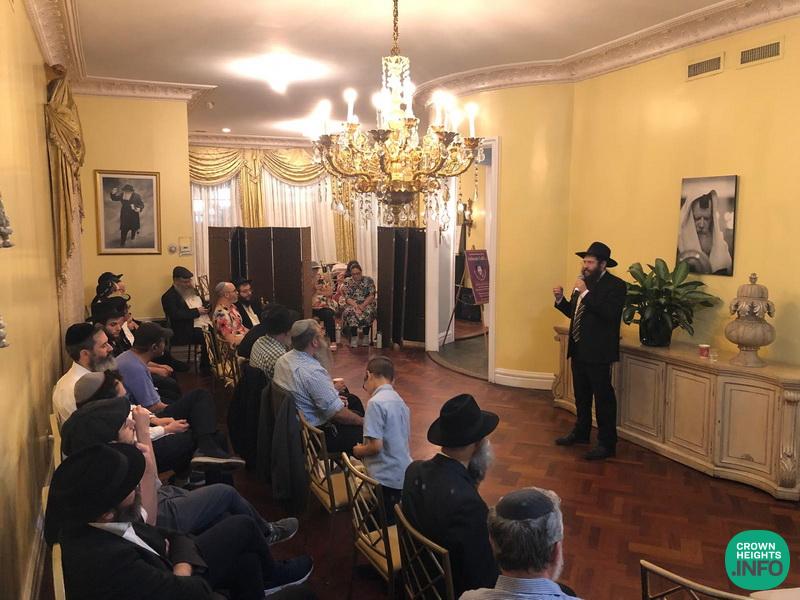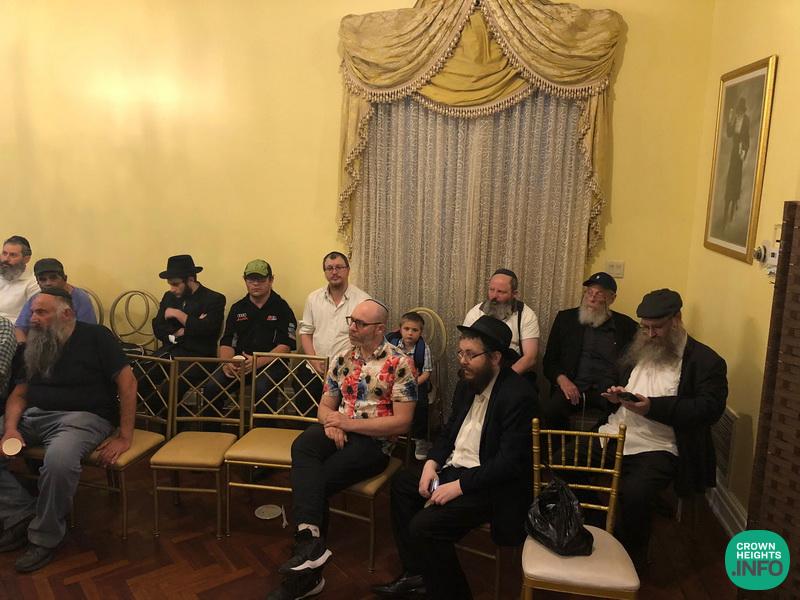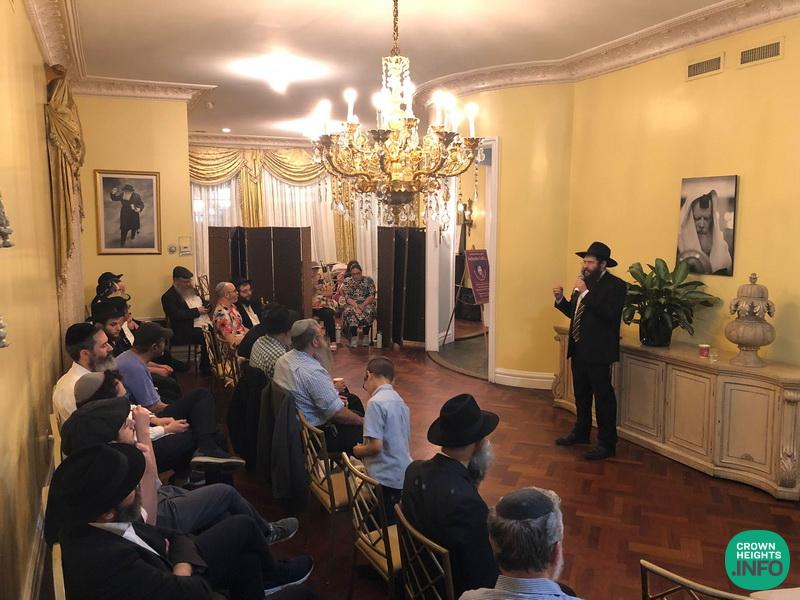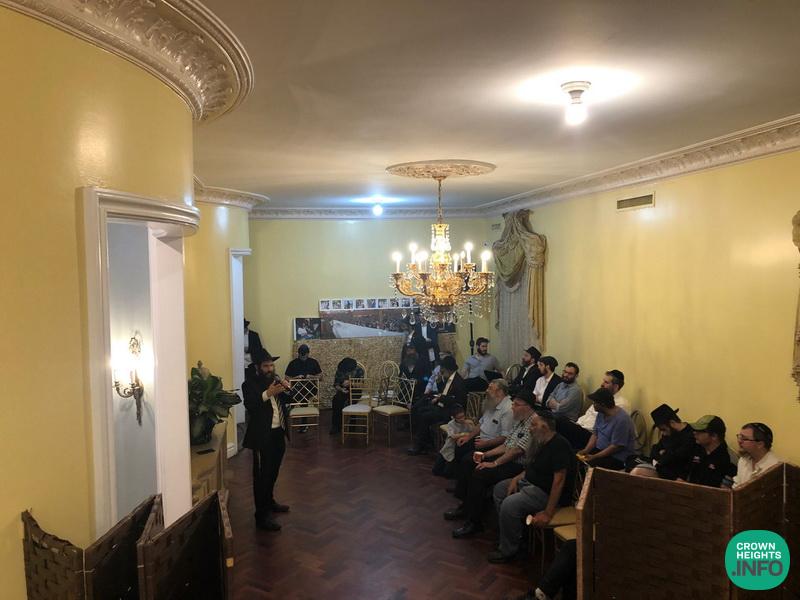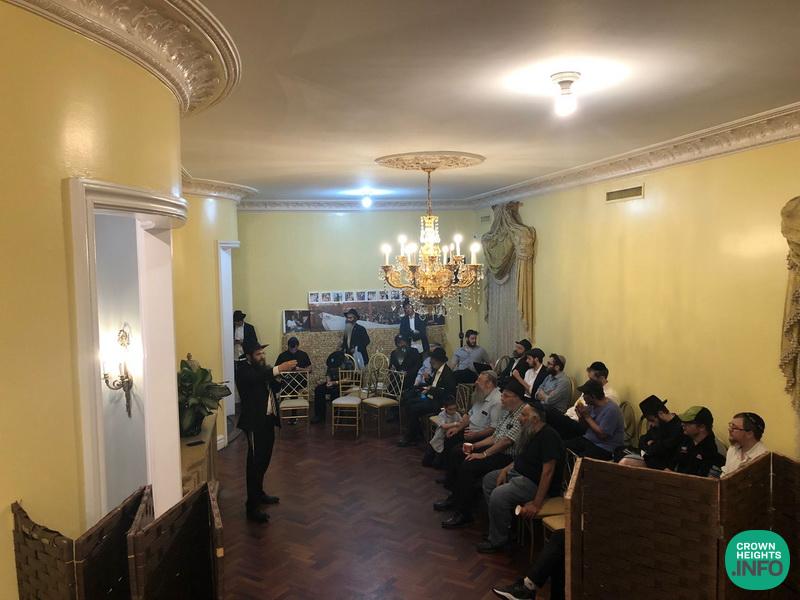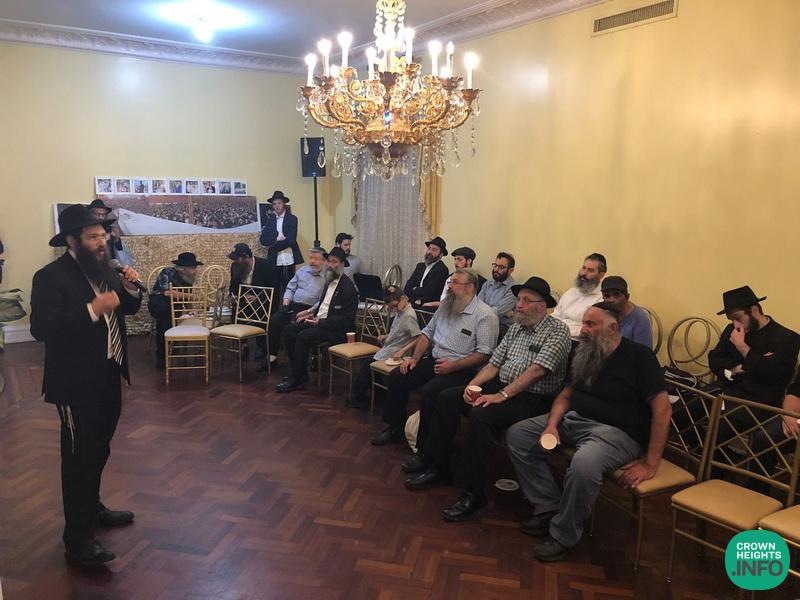
Celebrating Yehuda Leib’s Memory
Friends and family members gathered in Crown Heights last Wednesday evening, to pay respects to Yehuda Leib Greenwald, OBM.
A large crowd assembled at Beis Avraham Aaron on President Street in Crown Heights to celebrate the life of Yehuda Leib Greenwald, OBM. Friends, family members, classmates, and fellow congregants came together for the occasion. The evening was dedicated to honoring Yehuda Leib in highlighting his exceptional qualities through a series of heartfelt speeches, praises, and reminiscing fond memories.
Rabbi Mendel Yusewitz opened the evening with a passionate address, recounting the miracles and stories connected with the redemption and subsequent liberation of the Previous Rebbe, Rabbi Yosef Yitzchak Schneersohn, of sainted memory, on Yud-Beis and Yud-Gimmel Tammuz in the year 5687 (1927). Rabbi Yusewitz related that after the Frierdiker Rebbe was released, he instructed that no Hasidim should see him off at the train station upon his departure, fearing retribution from the KGB, who would undoubtedly be there to record and document all present. Despite this, Hasidim came in droves. When the Frierdiker Rebbe inquired about the whereabouts of Reb Nissan Nemenov, it was explained, “that the Rebbe instructed Hasidim not to come.” To this, the Frierdiker Rebbe responded in saying, ״רב ניסן איז א זיסער סאלדאט״ – Reb Nissan is a sweet soldier. Rabbi Yusewitz remarked, “Yehuda Leib too, was a sweet soldier,” before sharing the following:
One story cited was that of Rabbi Binyamin Gordon, a childhood friend. Walking alongside Yehuda Leib for quite a long distance to complete a minyan, Binyamin’s feet were hurting because he was wearing a new pair of Shabbos shoes that were not yet broken in. Binyamin told Yehuda Leib that he couldn’t go on and urged him to continue without him. Yehuda Leib would not have it. He insisted that they switch shoes and go on together. Binyamin relates that, without a doubt, Yehuda Leib returned with terribly blistered feet, yet he did not say a word. As Rabbi Yusewitz said, “To feel another Yid’s feet is not so simple, but for Yehuda Leib, it was his nature.”
Another story shared was of a Shliach who was scrambling to build a Sukkah and bind enough Arba Minim for his congregants just a few days before the Chag. Recognizing the urgency, Yehuda Leib jumped in wholeheartedly and got to work. Grateful for the much needed help, the Shliach offered to pay Yehuda Leib, but he refused. Finally, as a small token of appreciation, the Shliach took Yehuda Leib to a grocery store and offered to buy him whatever he liked. Yehuda Leib let the Shliach buy him a snack, more so to facilitate the Shliach’s wish to repay a token of the invaluable good deed. To do good for nothing in return-that was Yehuda Leib’s course of action.
Next, Rabbi Yacov Barber, a friend of the Greenwald family from Melbourne, Australia, spoke. Rabbi Barber noted how Yehuda Leib resembled his father, who is also an איש של חסד (man of kindness). He highlighted that, like his father, Yehuda Leib was always smiling and had a pleasant demeanor.
He continued with the following anecdote:
A teacher was once asked what the Jewish response to the end of life and mourning is. “Weeping, silence, and song,” replied the teacher.
“Weeping, I understand,” said the student, “for the departed is sorrowfully absent from our midst. Silence I too understand since the Torah states that when Aaron The High Priest lost his two sons, Aaron stood silent, offering a moment of Thanksgiving to the Almighty, reflecting on what it would have been like if his two sons (G-d forbid), had never been a part of his life at all. But song, I do not understand,” said the student.
The teacher responded, “We must recognize that every day of a person’s life is like a note of music being played on the piano. The dark moments in one’s life correspond to the low note keys, and the happy moments correspond to the high note keys. When a person passes, the song is not concluded. The song continues to be played, and it becomes the responsibility of the departed’s loved ones and friends to continue playing that song.
“What is the song that we need to continue playing? What is the message that we take with us? In Yehuda Leib’s circumstance, that song is extending a greeting to someone with a warm smile, caring for another, and selflessly attending to the needs of others. That is who Yehuda Leib was, and that is how Yehuda Leib lived! In playing his song, we celebrate his life. We should take to heart that as we continue to play his song, Yehuda Leib lives on in each and every one of us.”
Two of Yehuda Leib’s older sisters were also in attendance. Rochel Leah Burstyn from Detroit, Michigan, and Chana Greenwald from Brooklyn, New York. Rochel Leah spoke heartwarmingly about growing up with Yehuda Leib and shared numerous stories praising his exemplary generous nature and wholesome outlook on life. Yehuda Leib had tremendous כבוד אב ואם (honor for his parents), was very close to his siblings, and was a spiritual rock for his nephews and nieces, always there for them in times of need.
Next, Rabbi Chaim Pil of The Heights Shtiebel, where Yehuda Leib was a fellow congregant, spoke. Rabbi Pil highlighted Yehuda Leib’s active involvement in the shul, from sponsoring shiurim to offering a helping hand. Whether it was tidying up the space or assisting with the errands, Yehuda Leib always did so with a lively spirit and a big smile.
The evening concluded with attendees sharing personal stories and memories of their time with Yehuda Leib. One of Yehuda Leib’s former employers recounted how he was often astounded by Yehuda Leib’s ability to remain calm and positive during stressful situations, even when he and others struggled to maintain composure. Rabbi Bezalel Broh, a very close childhood friend, remarked that Yehuda Leib was simply a pure neshama, always striving to do the good and right thing at any given moment. Fellow congregant Yonatan Perkins said that unexpectedly running into Yehuda Leib at Shabbos or Yom Tov seudahs always raised his spirits because he was so pleasant. Another attendee shared how astonished he was on one Shabbos day walk as he observed Yehuda Leib greet every person they passed, whether he knew them or not, Jewish or not.
He was humble and good, always positive, very generous with his time for the benefit of others, always available and helpful. Let us learn from his ways on how to be better Hasidim in our dealings with those around us. Let us reinvigorate ourselves in doing good for another without expecting anything in return. Every Yid can be valiant as a לייב (lion) in championing the refined ways of our friend – Yehuda Leib of blessed memory. Let us play ‘his’ song.
He will be missed!
הקיצו ורננו שוכני עפר – “You who repose in the dust: Awaken and sing joyful praises!” (Yeshayahu 26:19).
Moshiach now! Amen.
